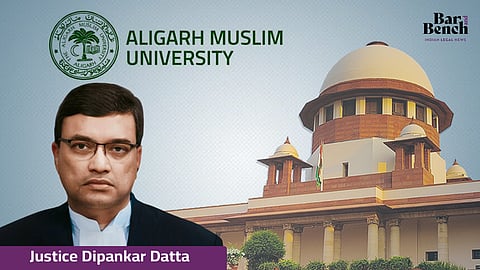
- News
- Columns
- Interviews
- Law Firms
- Apprentice Lawyer
- Legal Jobs
- हिंदी
- ಕನ್ನಡ

Supreme Court judge Justice Dipankar Datta on Friday expressed his anguish with the seemingly late circulation of the draft majority judgment in the Aligarh Muslim University case, and the subsequent lack of meaningful meetings to discuss the verdict.